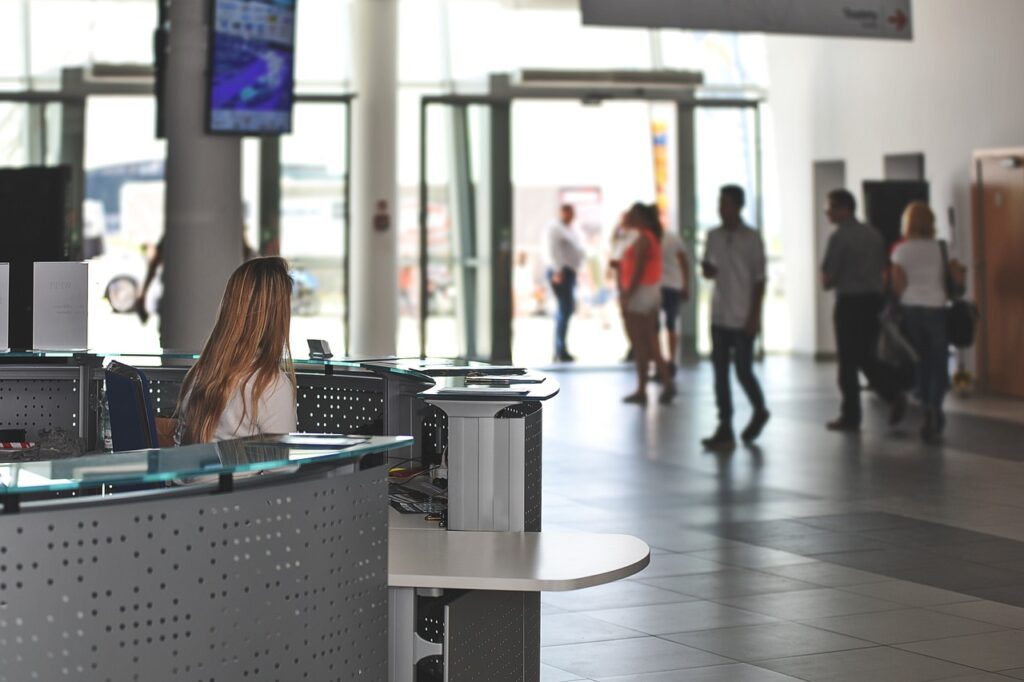If you’re planning on moving to France, there’s a heap of things to do in order to get yourself properly settled. So we thought that we’d take you through some of essentials.
When it comes to living in France, there are two things you have to be really good at: paperwork and patience.
The French love their bureaucracy, red-tape and paperwork – there’s very little that can be done online, and it will seem that the “fonctionnaires” (government staff/civil servants) are unhelpful and making you jump through unnecessary hoops. You’ll always seem to be missing one document, and asked to visit endless different departments. BUT the system does work, and you will get there in the end, so just be patient, follow the rules, and know that there is very rarely any short-cuts.

And one more crucial tip – always remain polite and be honest with the fonctionnaires, because your dossier can always end up at the bottom of pile again. Honesty and word-of-honor mean a lot to the French, in fact many important business documents must be signed under “on my honor.”
visas

Since Brexit, it is no longer possible for Brits to move long term to France without the right paperwork. There are a few options, but the starting point should be to make a visa application appointment online for your nearest local French consulate.Appointments are often booked months in advance, and there’s an odd system where appointments become available at specific times on certain days. Once you have your appointment arranged you’ll receive guidance on what paperwork needs to submitted in your dossier.
There are a few options for visas depending on your circumstances and how long you plan to stay in France.
- If you intend to stay in France for longer than 90 days, you must apply for a long-stay visa in advance of your travel.
- If you want to stay in France for longer than a year, you’ll need a “long-stay visa” prior to your arrival in France. Once you’ve arrived in France you’ll need to finalize the visa by confirming your French residential address, and providing a credit card to pay the “timbre fiscaux” or tax. You’ll also need a chest x-ray, and attend a medical appointment.
- For longer than one year, you’ll need to apply for the carte de sejour or Titre de Séjour — a French residency card. This is the second step on the road to becoming a permanent resident in France. Applying for your Carte de Séjour can be done online here (click ‘Je demande ou renouvelle un titre de séjour’), and you can use the same account which you created when validating your long-stay visa (read more about that here). You will also need to attend a meeting or ‘interview’ at your local prefecture.
- If you’re married to a French national, you can apply for French citizenship, there are a number of criteria that you must meet, including language ability (and its quite a high level), and integration conditions – and your French spouse will need to have a heap of French paperwork certified in France.
FRENCH TAXES THAT YOU NEED KNOW ABOUT

- Income Tax
If you’re working in France income tax is generally deducted from you monthly pay-check. Tax rates are not too dissimilar to that of the UK – with the €10,000 being tax free, and the staggered levels of tax ranging from 11% to 45%
- French Habitation Tax
Habitation tax is an annual residence tax imposed on the occupier of a property in which they were resident on 1st January of each year. If the property is your second home, even though you may not physically be resident on 1st January, the tax is still payable, provided the property is capable of occupation. GOOD NEWS that this is being phased out, and at the time of writing only top earners will need to pay this tax.
- Foncière Tax
Taxe foncière tax is paid by the owner of the property, irrespective of who occupies it. Taxe foncière is based on a theoretical annual rental value calculated by the tax office, called the valeur locative cadastrale (VLC). This figure, which will probably not bear much resemblance to the actual market value you would obtain if you rented it out, takes into account various factors such as location, quality of construction and comfort. The tax varies from town/city to town/city, and is increasing year on year.
- French Audio/Visual Tax
The French government is preparing to end the TV licence fee this year in a change estimated to apply to around 23 million households, saving them €138 a year.
The measure was an election promise by President Emmanuel Macron and comes after the gradual suppression of one of France’s main local taxes – the taxe d’habitation – during his first term.
OTHER ESSENTIAL INFO FOR LIVING AS AN EXPAT IN FRANCE
Register with your local GP (Médecin Traitant)
Some of your healthcare costs in France can be reimbursed through social security system, but if you wish to ensure full eligibility to reimbursement of your health costs you are required to register with a doctor as your médecin traitant.
There is however a doctor shortage in France so be aware that some doctors are not taking on new clients.
Similar to England, your médecin traitant is always your first port of call for any ailment, and he/she will refer you to a specialist (dentist, optometrist, gyno, etc). If you see a specialist without a referral you will get far less money back with your Carte Vitale.

Carte Vitale Insurance Card
Make sure to get your Carte Vitale as soon as you move to France. After getting your long stay visa stamp in your passport and arriving in France, and only after you’ve received your permanent stamp, then you can get your insurance card. You can request it online here once you have your picture printed and ready to go!
You can also use your French social security number – which comes with your permeant stamp – to get refunds for your health visits, but if you don’t have your carte vitale present with you at your healthcare visit, it takes much longer to get a refund.